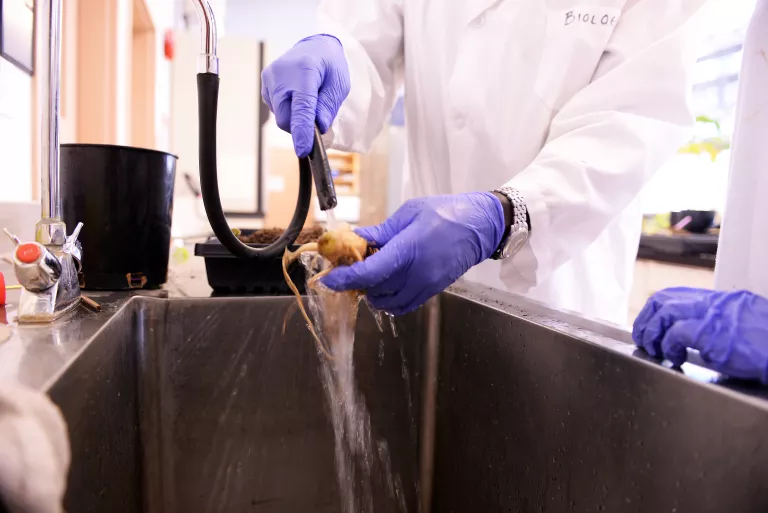UNBC researchers are looking into the viability of using “the miracle tree” as a point-of-use water treatment. The Moringa oleifera is a tropical tree. It gets its moniker from the many uses of all parts of the tree.
Moringa is antimicrobial. Various parts of the plant have been used to treat typhoid, and faecal coliforms in water. The roots have medicinal value. The tree’s rapid growth could make them a practical, sustainable and inexpensive water treatment method.
Ecosystem Science and Management professor Dr. Chris Opio and graduate student Chandehl Morgan investigate if powdered roots kill bacteria in water. Will the treated water meets Canadian drinking water guidelines? This could lead to development of a water treatment solution used in at-risk communities, such as rural First Nations.
Lack of access to safe drinking water is a significant issue. The United Nations and World Health Organization report that 663 million people live without access to safe water. Lack of access to clean water and sanitation results in the spread of diseases. It also causes the death of more than 840,000 people each year. Waterborne diseases disproportionately affect those in marginalized societies, such as rural First Nations communities in Canada.
Roots from Moringa trees have been grown in the UNBC Enhanced Forestry Lab. They will be harvested and placed in two treatment categories: fresh and dry. The bark will be peeled off the roots, and the roots powdered. Water that is contaminated with E.coli will be treated with Moringa root powder to determine any effect on E.coli. Different concentrations of Moringa will be applied in different water samples to determine optimal Moringa concentration. The root powder will also be added to distilled water. This will determine if the powder adds any chemicals or organics to water. The water will be analyzed for all pH, electrical conductivity, chemicals and organics. The data will be used to determine whether the water meets Canadian guidelines and is safe for human consumption.
This research will fill a gap in existing literature about Moringa. If successful, it could be good news for people living without access to clean water. It could be applied in First Nations communities in Northern B.C. and across Canada that do not have access to traditional water treatment. It has potential where remote locations makes installing traditional systems difficult and expensive. It could further be applied in developing countries, or as a response during emergency situations.
Every day, researchers at UNBC are discovering local solutions that have a global impact.
Unparalleled real-life settings challenge our students to apply their practical knowledge to solve problems.
UNBC is one of Canada’s top-ranked research-intensive universities. We offer undergraduate students the opportunity to get involved in research projects as early as their first year. Graduate students are able to work closely with faculty members on ground-breaking research projects.
